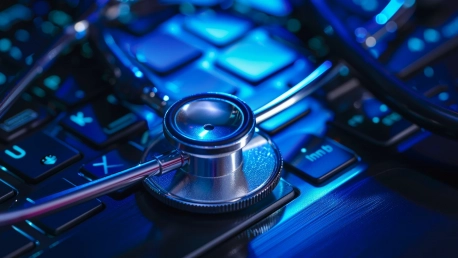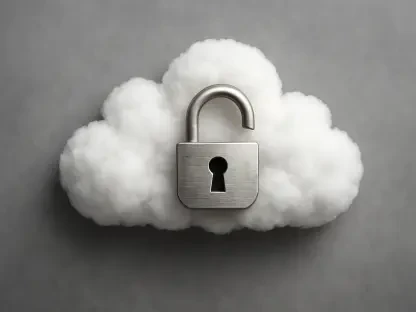The increasing frequency and intensity of cyberattacks targeting major US healthcare sector technology firms are raising significant concerns. Recently, HealthEquity, a well-known provider of health savings account services, experienced a serious breach that compromised its business partner’s account and personal device. This incident, first reported by Bleeping Computer and later confirmed by HealthEquity in an SEC filing, exposed personally identifiable information of some of its members. According to the company, the event was swiftly isolated so as to have no material adverse impact on its operations, but neither the number of affected individuals nor the identity of the hackers has been disclosed. This breach is not an isolated event but part of a broader trend in escalating cyberattacks on healthcare providers primarily driven by financial motives.
The Surge in Healthcare Cyberattacks
The healthcare sector has witnessed unprecedented levels of cyberattacks in recent years, escalating both in frequency and sophistication. Earlier this year, a serious ransomware attack crippled UnitedHealth Group’s IT subsidiary, executed by the notorious BlackCat group. This attack impacted healthcare operations across various establishments and pharmacies, compelling the company to pay $22 million to recover sensitive medical records. UnitedHealth CEO Andrew Witty revealed that the incident affected up to one-third of Americans. The ripple effects of such breaches extend beyond immediate financial costs, potentially compromising the well-being of patients who rely on these services for timely medical care.Numerous healthcare providers across North America and Europe have similarly reported ransomware incursions primarily targeting their medical records. The Federal Bureau of Investigation (FBI) has observed a notable uptick in ransomware incidents aimed at critical infrastructure and services, with healthcare, manufacturing, and government agencies being particularly vulnerable. In response to this surge, the FBI has promised to enhance its collaborative efforts with international cybersecurity agencies. These incidents underscore the immense scale of the threat and the substantial efforts required to mitigate such risks. They also highlight the dire need for healthcare firms to adopt more robust cybersecurity measures to protect their data and operations.
Financial Motives and Vulnerabilities
The financial incentive behind these cyberattacks cannot be understated. Driven by the potential for lucrative ransoms, cybercriminals are employing increasingly sophisticated methods to exploit vulnerabilities within healthcare systems. HealthEquity’s quick response to their recent cyberattack may have mitigated its immediate impacts, but the lack of transparency regarding the scope of the breach adds another layer of complexity. UnitedHealth’s substantial ransom payment to retrieve sensitive medical records exemplifies the high financial stakes involved. While the direct costs of such incidents are staggering, the intangible repercussions related to trust, service disruptions, and the potential for compromised patient care are equally alarming.The growing incidents represent a worrying trend, indicating that cybersecurity defenses in the healthcare sector may not be sufficiently robust. The gap between cybersecurity requirements and actual capabilities seems to be widening. As healthcare firms rely increasingly on complex networks and digital records, they inadvertently expose themselves to new kinds of risks. The urgent need for enhanced vigilance and stronger cybersecurity measures is clear; beyond immediate financial ramifications, these cyberattacks pose a direct threat to the quality and reliability of healthcare services. A multilayered approach that combines technical, procedural, and human elements is essential for effective defense against these evolving cyber threats.
The Call for Enhanced Vigilance
The financial incentives driving cyberattacks on healthcare systems are significant. Attracted by the potential for large ransoms, cybercriminals are using ever-more sophisticated techniques to exploit vulnerabilities. HealthEquity’s prompt response to a recent cyberattack may have softened its immediate impact, but the lack of clarity about the breach’s full extent complicates matters. UnitedHealth’s hefty ransom payment to recover sensitive medical records underscores the high financial stakes. However, the costs extend beyond finances—trust erosion, service disruptions, and risks to patient care add to the damage.This disturbing trend highlights that current cybersecurity measures in healthcare may be inadequate. The gap between what is needed and what exists is apparently growing. As healthcare organizations become more reliant on complex digital networks and records, they expose themselves to novel risks. The urgent need for stronger cybersecurity measures is clear; these cyberattacks threaten not just finances but the quality and reliability of healthcare services. A comprehensive approach combining technical, procedural, and human elements is vital for effective defense against these evolving threats.









